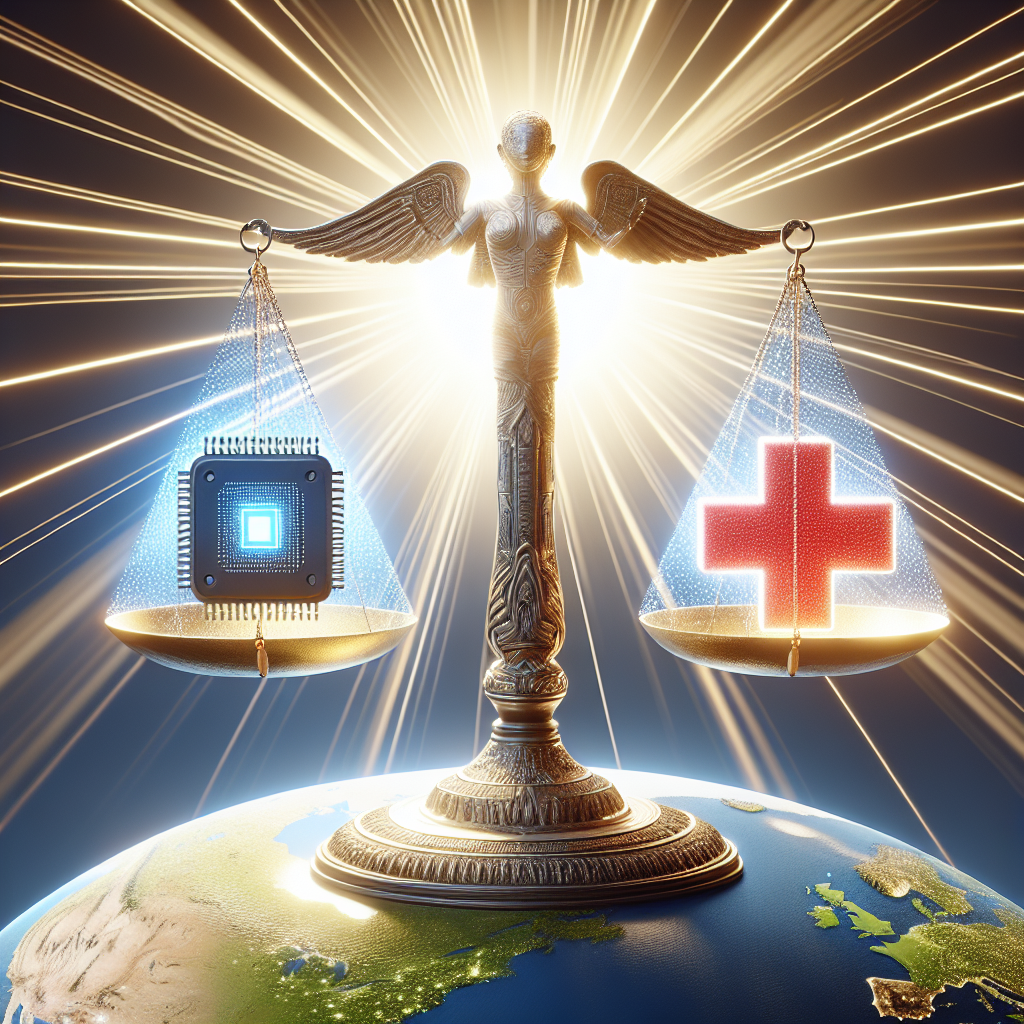The democratization of artificial intelligence (AI) has been a game-changer in many industries, including healthcare. As AI becomes more accessible and affordable, it has the potential to revolutionize the way we approach healthcare by improving diagnostics, treatment, and patient care. In this article, we will explore the impact of the democratization of AI on the healthcare industry and how it is changing the way we deliver and receive healthcare services.
One of the key benefits of the democratization of AI in healthcare is its ability to improve diagnostics. AI algorithms can analyze large amounts of patient data, such as medical images, lab results, and genetic information, to identify patterns and make accurate diagnoses. This can help healthcare providers make quicker and more accurate diagnoses, leading to better outcomes for patients.
In addition to improving diagnostics, AI can also help personalize treatment plans for patients. By analyzing a patient’s medical history, genetic information, and other relevant data, AI algorithms can recommend treatment options that are tailored to the individual patient’s needs. This personalized approach to healthcare can lead to better outcomes and reduced healthcare costs in the long run.
AI can also improve patient care by helping healthcare providers monitor patients remotely and intervene when necessary. For example, AI-powered monitoring systems can track a patient’s vital signs and alert healthcare providers if there are any abnormalities. This can help prevent medical emergencies and provide timely interventions, ultimately improving patient outcomes.
The democratization of AI in healthcare is also making healthcare services more accessible to underserved populations. By using AI-powered chatbots and virtual assistants, healthcare providers can offer telemedicine services to patients in remote areas or those who have difficulty accessing traditional healthcare services. This can help bridge the gap in healthcare disparities and ensure that all patients have access to quality healthcare services.
However, the democratization of AI in healthcare also raises concerns about patient privacy and data security. As AI algorithms rely on large amounts of patient data to make accurate diagnoses and treatment recommendations, there is a risk of data breaches and misuse of patient information. Healthcare providers must ensure that they have robust data security measures in place to protect patient data and comply with regulations such as the Health Insurance Portability and Accountability Act (HIPAA).
Another challenge of the democratization of AI in healthcare is the potential for bias in AI algorithms. AI algorithms are only as good as the data they are trained on, and if the data is biased, the algorithm may produce biased results. For example, if AI algorithms are trained on data that is predominantly from white male patients, they may not be as accurate in diagnosing and treating patients from other demographics. Healthcare providers must be vigilant in monitoring and addressing bias in AI algorithms to ensure that they provide equitable care to all patients.
In conclusion, the democratization of AI in healthcare has the potential to revolutionize the way we deliver and receive healthcare services. By improving diagnostics, personalizing treatment plans, and enhancing patient care, AI can help healthcare providers deliver more efficient and effective care to patients. However, healthcare providers must also address concerns about patient privacy, data security, and bias in AI algorithms to ensure that the benefits of AI in healthcare are realized for all patients.
FAQs:
Q: What is the democratization of AI in healthcare?
A: The democratization of AI in healthcare refers to the increasing accessibility and affordability of AI technologies in the healthcare industry. This trend is making it possible for healthcare providers to leverage AI algorithms to improve diagnostics, personalize treatment plans, and enhance patient care.
Q: How can AI improve diagnostics in healthcare?
A: AI algorithms can analyze large amounts of patient data, such as medical images, lab results, and genetic information, to identify patterns and make accurate diagnoses. This can help healthcare providers make quicker and more accurate diagnoses, leading to better outcomes for patients.
Q: What are the benefits of personalized treatment plans in healthcare?
A: Personalized treatment plans in healthcare can help healthcare providers recommend treatment options that are tailored to the individual patient’s needs. This personalized approach to healthcare can lead to better outcomes and reduced healthcare costs in the long run.
Q: How can AI help improve patient care in healthcare?
A: AI can help improve patient care by helping healthcare providers monitor patients remotely and intervene when necessary. AI-powered monitoring systems can track a patient’s vital signs and alert healthcare providers if there are any abnormalities, helping prevent medical emergencies and provide timely interventions.
Q: What are some of the challenges of the democratization of AI in healthcare?
A: Some of the challenges of the democratization of AI in healthcare include concerns about patient privacy and data security, as well as the potential for bias in AI algorithms. Healthcare providers must ensure that they have robust data security measures in place and address bias in AI algorithms to ensure equitable care for all patients.

